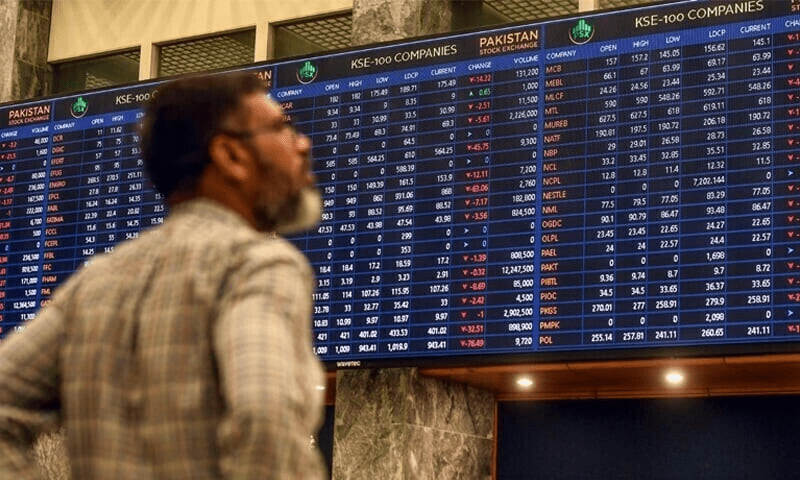Bullish momentum was observed at the Pakistan Stock Exchange (PSX), as the benchmark KSE-100 Index closed with a gain of over 1,500 points on Monday.
Positive movement persisted throughout the trading session, pushing the KSE-100 Index to an intra-day high of 116,494.19.
At close, the benchmark index settled at 116,390.03, an increase of 1,536.70 points or 1.34%.
Buying was observed in key sectors including cement, chemical, commercial banks, oil and gas exploration companies, refinery and power generation. Index-heavy stocks including HUBCO, NRL, SNGPL, PPL, POL, HBL, MEBL, NBP and UBL traded in the green.
Investors rejoice as the inflow of overseas workers’ remittances into Pakistan stood at $4.1 billion in March 2025, crossing the $4-billion mark for the first time, the State Bank of Pakistan (SBP) data showed on Monday.
During the previous week, the PSX remained volatile amid heightened global uncertainty triggered by tariff announcements from the US President Donald Trump.
The benchmark KSE-100 index dropped 3,938 points, or 3.3%, on a week-on-week basis, closing at 114,853 points.
Globally, Wall Street share futures rallied in Asia on Monday after the White House exempted smartphones and computers from “reciprocal” US tariffs, though gains were limited as Trump warned levies were still likely at some point.
Trump on Sunday told reporters tariffs on semiconductors would be announced over the next week and a decision on phones made “soon”.
On the face of it, the exemption of 20 product types accounting for 23% of US imports from China, was a boon to manufacturers.
However, the off-again, on-again policy gyrations left investors confused and analysts bearish on the long run.
MSCI’s broadest index of Asia-Pacific shares outside Japan rose 1.6%, having shed more than 4% last week.
Chinese blue chips gained 0.5%, with suppliers of Apple gear doing well.
Japan’s Nikkei added 1.6%, after fluctuating wildly in recent days in response to the changing tariff news.
Japanese officials are gearing up for trade negotiations with the United States that will likely touch on currency policy, with some officials privately bracing for Washington to call on Tokyo to prop up the yen.


